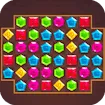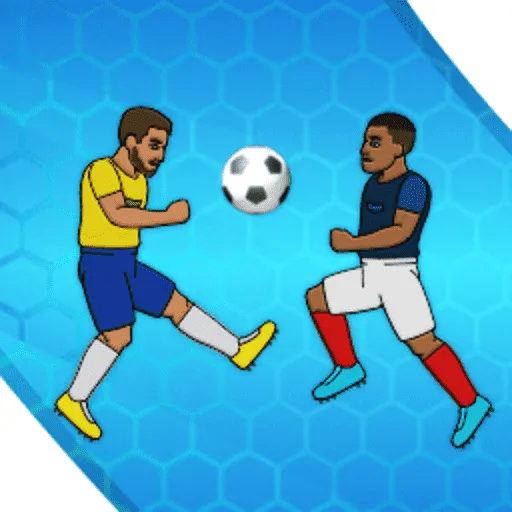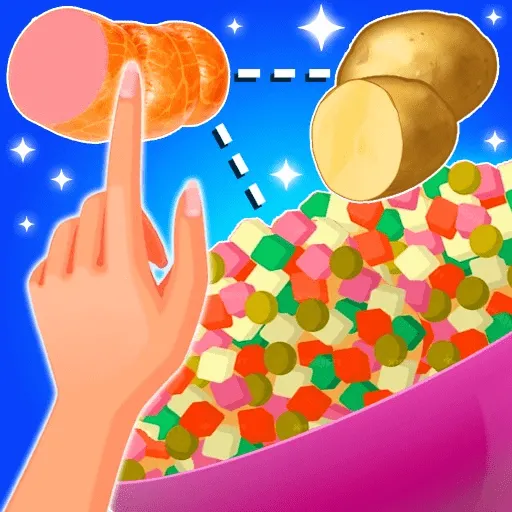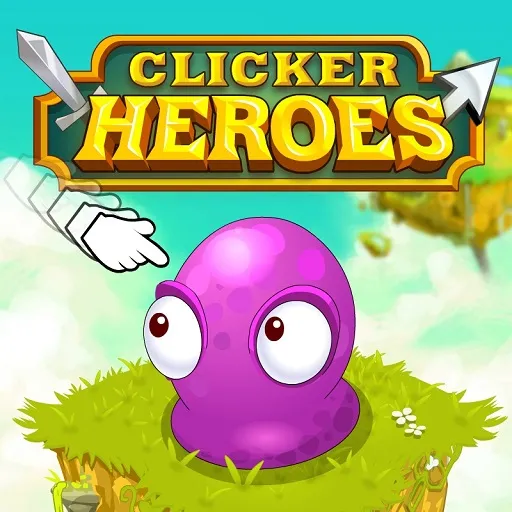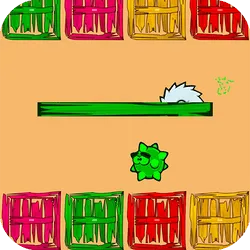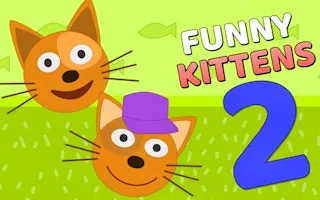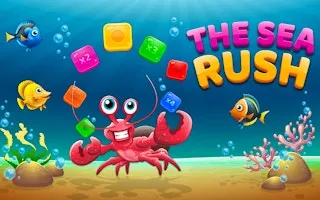Rich or Poor Game Instructions
Start the Game: Begin by clicking the "Play" button to start your journey to collect wealth and avoid obstacles.
Movement: Use the left and right arrow keys on your keyboard to move the character. The character will automatically walk forward.
Collect Green Items: As you move forward, collect green items (such as cash and assets) to increase your wealth. The more green items you collect, the better your outfit will look.
Avoid Red Items: Stay away from red items like bills and toxic food, as they will reduce your wealth and downgrade your outfit.
Finish Line: The goal is to reach the finish line with as much wealth as possible. If you lose too much money, you’ll have to retry the level.
Watch Your Wealth Meter: Your wealth is displayed as a bar above the character’s head. Make sure it doesn’t empty, or you’ll lose the game!
title="YouTube video player"
frameborder="0"
allow="accelerometer; autoplay; clipboard-write; encrypted-media; gyroscope; picture-in-picture; web-share"
referrerpolicy="strict-origin-when-cross-origin"
allowfullscreen>
Following these steps will help you succeed in the game while having fun collecting wealth and upgrading your character’s appearance!
Movement: Use the left and right arrow keys on your keyboard to move the character. The character will automatically walk forward.
Collect Green Items: As you move forward, collect green items (such as cash and assets) to increase your wealth. The more green items you collect, the better your outfit will look.
Avoid Red Items: Stay away from red items like bills and toxic food, as they will reduce your wealth and downgrade your outfit.
Finish Line: The goal is to reach the finish line with as much wealth as possible. If you lose too much money, you’ll have to retry the level.
Watch Your Wealth Meter: Your wealth is displayed as a bar above the character’s head. Make sure it doesn’t empty, or you’ll lose the game!
Rich or Poor Video Game Demo
title="YouTube video player"
frameborder="0"
allow="accelerometer; autoplay; clipboard-write; encrypted-media; gyroscope; picture-in-picture; web-share"
referrerpolicy="strict-origin-when-cross-origin"
allowfullscreen>
Following these steps will help you succeed in the game while having fun collecting wealth and upgrading your character’s appearance!
Categories:
Rich or Poor Game Description
Discover the Game “Rich or Poor” – A Journey Through Wealth and Challenges
"Rich or Poor" is an exciting online game where players navigate through challenges to collect wealth, avoid obstacles, and transform their fortunes. Experience the thrill of decision-making on your journey to financial success.
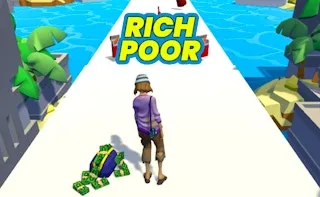
Rich or Poor
The online game "Rich or Poor" brings an interesting twist to the age-old debate of wealth versus poverty. With simple controls and an engaging concept, players embark on a journey that requires them to collect wealth while avoiding the dangers that threaten their financial well-being. The goal is simple: gather as much money as possible and finish strong at the end of each level, but the path is filled with decisions that could either make you rich or leave you poor. With such an easy yet captivating concept, "Rich or Poor" appeals to players of all ages, offering a delightful mix of fun and learning.
How "Rich or Poor" Works?
In the game "Rich or Poor," players are tasked with navigating a path that represents the journey to wealth. As they walk forward automatically, their mission is to collect items that increase their wealth, indicated by a bar above the character’s head. The twist is that not everything on the road is beneficial. Along the way, the player encounters both green and red items—green items, such as money and valuable assets, increase wealth, while red items, such as toxic food and financial burdens, drain the character's fortune.
Movement and Strategy
Players control the character's movements left and right using keyboard arrows. The key is to be mindful of what they collect. Green items lead to financial success and luxury, represented by visual upgrades to the character’s outfit, while red items represent debts and poor decisions that diminish wealth. The simplicity of the controls contrasts with the need for strategic thinking, as collecting the wrong items will set the player back.
A Visual Transformation
One of the standout features of "Rich or Poor" is the visual transformation of the character. As the player accumulates more wealth, their appearance changes, with richer outfits and a more polished look. This provides a satisfying representation of the player's progress and serves as a motivating factor to continue making smart financial decisions. However, if the player collects too many negative items, their appearance begins to deteriorate, reflecting the consequences of poor financial management.
Wealth vs. Poverty: A Core Theme
The concept of wealth disparity is at the heart of "Rich or Poor." This theme is not just a backdrop but a central part of the gameplay experience. The game offers a playful yet thought-provoking look at the socioeconomic divide, where a single wrong decision can have significant consequences on a person’s financial status.
Throughout the game, players are reminded of the fine line between riches and poverty. The items collected serve as metaphors for real-life choices—wealth comes from smart decisions and investments, while poverty is often the result of neglecting financial responsibilities or indulging in harmful habits. This lesson is embedded naturally into the game mechanics, making "Rich or Poor" not only fun but also educational.
In-Game Challenges and Obstacles
The Role of Toxic Food
A major obstacle in the game is the toxic food items. These red-coded items symbolize unhealthy financial habits or bad investments, and they can quickly diminish a player’s wealth. In the real world, toxic financial decisions—such as overspending, debt accumulation, or gambling—can lead to financial ruin. The game cleverly translates these real-world dangers into a fun yet cautionary tale for players.
Decision-Making in Every Step
Every move in "Rich or Poor" represents a financial decision. The player must navigate carefully, picking up money and assets while dodging bills and burdens. This adds a layer of depth to the seemingly simple gameplay. The player’s wealth meter is a constant reminder of how each decision impacts their overall standing, and one misstep can quickly lead to financial trouble. This emphasizes the importance of making wise, well-considered choices, much like in real-life financial management.
Strategies to Succeed in "Rich or Poor"
To succeed in "Rich or Poor," players need to focus on collecting green items while avoiding red ones. Although this may sound easy, the items are often placed strategically to challenge the player’s reflexes and decision-making abilities. For instance, red items are sometimes placed in the middle of paths filled with green items, forcing players to make quick decisions to avoid them. Here are some helpful strategies:
Focus on Long-Term Gains
The key to success in "Rich or Poor" lies in long-term strategy. Much like real life, focusing on small gains and avoiding detrimental decisions pays off in the end. Players who patiently accumulate wealth while carefully navigating obstacles are rewarded with a higher score and a transformed appearance for their character.
Avoid High-Risk Areas
Certain sections of the game present high-risk areas where red items are more densely packed. These areas are best avoided, even if it means missing out on some green items. The best approach is to focus on collecting safe, easily accessible wealth rather than risking a major setback by entering hazardous areas.
Pay Attention to Visual Cues
The game uses color coding to provide visual cues on which items are beneficial and which are harmful. Mastering these cues is critical to success. Players who quickly recognize and react to these cues can maximize their wealth while avoiding the financial traps laid along the way.
The Psychological Appeal of "Rich or Poor"
"Rich or Poor" taps into the human desire for wealth and success. The visual rewards, such as upgrading outfits, are immediate and satisfying, encouraging players to keep pushing for more. This psychological appeal mirrors the way people approach wealth in real life—the more you gain, the more you want to accumulate.
The game also appeals to a broader audience by offering simple, casual gameplay while subtly delivering valuable life lessons about financial responsibility. The engaging mechanics combined with meaningful content make it more than just a game—it’s a tool for reinforcing the importance of financial literacy in a fun and interactive way.
A Global Appeal
Although "Rich or Poor" focuses on a universal theme of wealth disparity, its appeal extends globally, particularly to audiences in wealth-driven economies like the United States. The game’s simplicity allows players from all backgrounds to engage with it, while its deeper message resonates across cultures. Whether a player is young and learning about financial responsibility for the first time or older and more experienced with the ups and downs of managing money, "Rich or Poor" offers something for everyone.
"Rich or Poor" is more than just a casual game. It’s a reflection of the financial struggles and successes that many people face in real life. By integrating themes of wealth disparity, strategic decision-making, and financial responsibility, it offers an educational experience wrapped in the guise of entertainment. This balance between fun and learning makes it an essential game for anyone interested in improving their understanding of wealth management in an accessible and engaging way.
PunyGame © 2022. All rights reserved.

